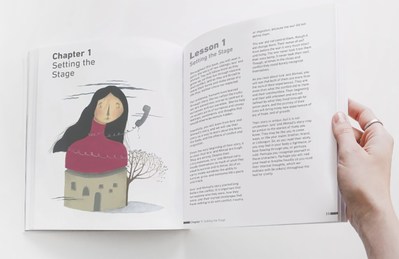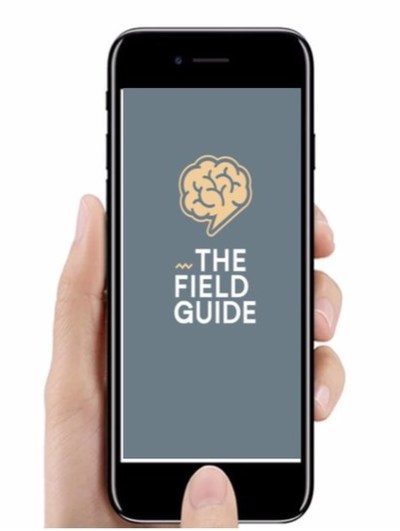Self-help tool reduces refugees’ psychological distress and mental health stigma
ORIGINALLY POSTED ON PRNewswire
BOSTON, Oct. 7, 2020 /PRNewswire/ — A new mental health intervention for displaced communities leads to meaningful improvements in the psychological wellbeing of Syrian refugees, according to a randomized control trial involving almost 160 participants in Za’atari, the world’s largest Syrian refugee camp.
“We found that the Field Guide for Barefoot Psychology improved mental health stigma, PTSD symptoms, and emotion regulation, with effects holding 3-months after completion. These findings are encouraging because the Field Guide can be shared with large numbers of people in low-resource settings by non-specialists with minimal training,” explains Dr. Vivian Khedari DePierro, a clinical psychologist working with Beyond Conflict, a global non-profit organization leading the intervention deployment.
According to several studies, displaced populations face a higher risk of experiencing mental health challenges while also dealing with the stigma associated with discussing mental health illness and seeking care. Researchers approached this obstacle through the use of narrative storytelling combined with accessible explanations for mental health symptoms, and self-care exercises.
“Anyone is willing to read a story. The Field Guide narrates the journey of two young Syrians as they navigate unexpected conflict and forced displacement and all that experience entails. By using storytelling, we allow people who live in a culture of incredible stigma a useful and effective way forward,” points out Mike Niconchuk, program director at Beyond Conflict.
The Field Guide was developed by researchers at Beyond Conflict, the New School for Social Research, and the University of California-Berkeley in conjunction with Syrian refugees in Jordan, whose experiences of forced displacement, trauma, and stress are featured in the narrative story and artwork of the book and online application.
Unfortunately, stigma is not the only barrier to mental health care. The novel coronavirus has proven to be another hurdle, alerts a recent WHO poll that shows how COVID-19 has disrupted mental health services in most countries around the world.
This new reality highlights the need for mental health interventions designed for large-scale implementation in humanitarian settings. “In Za’atari Camp, as in many refugee hotspots around the world, individuals’ mental health has deteriorated in the past months. The system cannot accommodate the growing need for care, so we need to keep finding ways to deliver meaningful and useful care to people as this uncertainty continues unabated,” says program director Mike Niconchuk.
SOURCE Beyond Conflict
BOSTON, Oct. 7, 2020 /PRNewswire/ — A new mental health intervention for displaced communities leads to meaningful improvements in the psychological wellbeing of Syrian refugees, according to a randomized control trial involving almost 160 participants in Za’atari, the world’s largest Syrian refugee camp.
According to several studies, displaced populations face a higher risk of experiencing mental health challenges while also dealing with the stigma associated with discussing mental health illness and seeking care. Researchers approached this obstacle through the use of narrative storytelling combined with accessible explanations for mental health symptoms, and self-care exercises.
“Anyone is willing to read a story. The Field Guide narrates the journey of two young Syrians as they navigate unexpected conflict and forced displacement and all that experience entails. By using storytelling, we allow people who live in a culture of incredible stigma a useful and effective way forward,” points out Mike Niconchuk, program director at Beyond Conflict.
The Field Guide was developed by researchers at Beyond Conflict, the New School for Social Research, and the University of California-Berkeley in conjunction with Syrian refugees in Jordan, whose experiences of forced displacement, trauma, and stress are featured in the narrative story and artwork of the book and online application.
Unfortunately, stigma is not the only barrier to mental health care. The novel coronavirus has proven to be another hurdle, alerts a recent WHO poll that shows how COVID-19 has disrupted mental health services in most countries around the world.
This new reality highlights the need for mental health interventions designed for large-scale implementation in humanitarian settings. “In Za’atari Camp, as in many refugee hotspots around the world, individuals’ mental health has deteriorated in the past months. The system cannot accommodate the growing need for care, so we need to keep finding ways to deliver meaningful and useful care to people as this uncertainty continues unabated,” says program director Mike Niconchuk.
SOURCE Beyond Conflict

